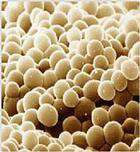Analysis of translational errors

All steps in the process of transferring genetic information from DNA to its working products, either RNA or protein, are subject to errors that can be extremely deleterious to the cell. As a result, at all stages biochemical mechanisms exist to insure that each step is as accurate as possible. Despite these mechanisms, errors do occur. The cell actually exploits some of these errors for a purpose, especially during the production of proteins (translation). The purposeful (“programmed”) production of erroneous proteins allows the cell to generate alternative versions of the encoded protein that have functions in the cell distinct from the correctly translated protein.